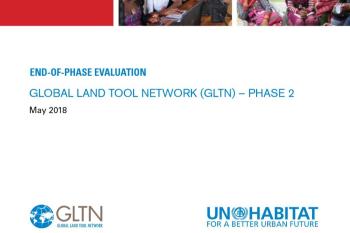
Read More
GLTN Phase 2: End-of-Phase Evaluation report 2018
This report presents the findings, lessons and recommendations of the End-of-Phase Evaluation of the Global Land Tool Network – phase 2 (GLTN 2).

This report presents the findings, lessons and recommendations of the End-of-Phase Evaluation of the Global Land Tool Network – phase 2 (GLTN 2).
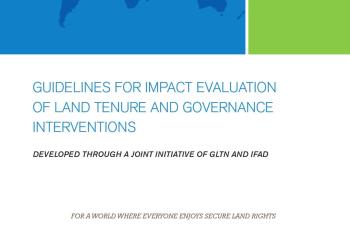
The overall objective of the Guidelines for Impact Evaluation of Land Tenure and Governance Interventions is to inform and strengthen the design and implementation of future land tenure a
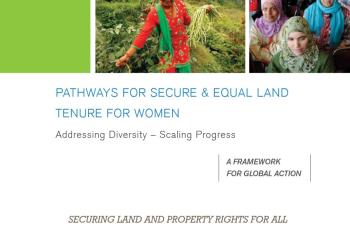
Achieving equitable and secure land tenure for all people, especially for women and girls, requires a change in mind-set to deliver accessible, affordable and adaptable land governance me
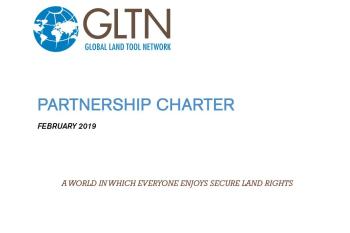
The GLTN Partnership Charter is a document that describes the GLTN network, the vision, mission and values, the governance structure, membership, roles and functions.
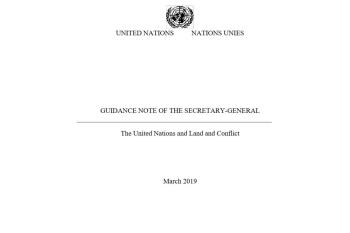
Over the coming decades, competition and conflict over land is likely to intensify with the growing pressures of climate change, population growth, increased food insecurity, migration an
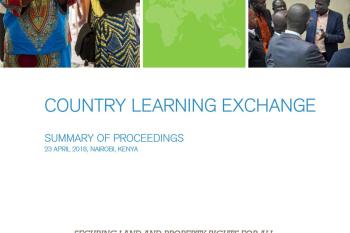
This publication is the summary of the proceedings of the Country Learning Exchange held in Nairobi, Kenya on the 23rd of April 2018 during the 7th GLTN Partners week.
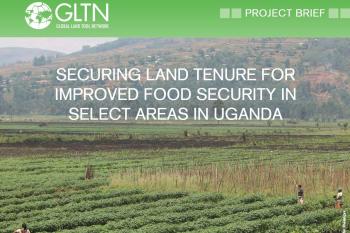
The “Securing Land Tenure for Improved Food Security in Select Areas in Uganda” project is funded by the Embassy of the Kingdom of the Netherlands in Uganda and implemented by the Global
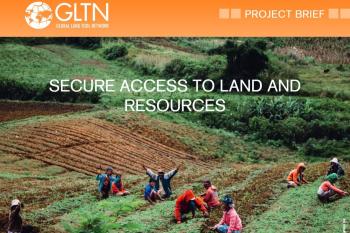
The Secure Access to Land and Resources (SALaR) project aims to address these issues under the initiative of the Global Land Tool Network (GLTN), as facilitated by UN-Habitat.
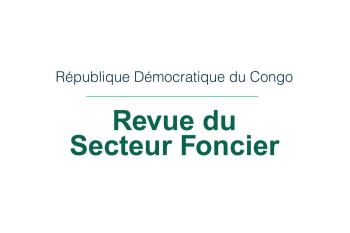
Aimed at supporting the government’s initiative to overhaul its land policy, the Land Sector Review comes in response to a request received from the Minister for Land Affairs while a Cong